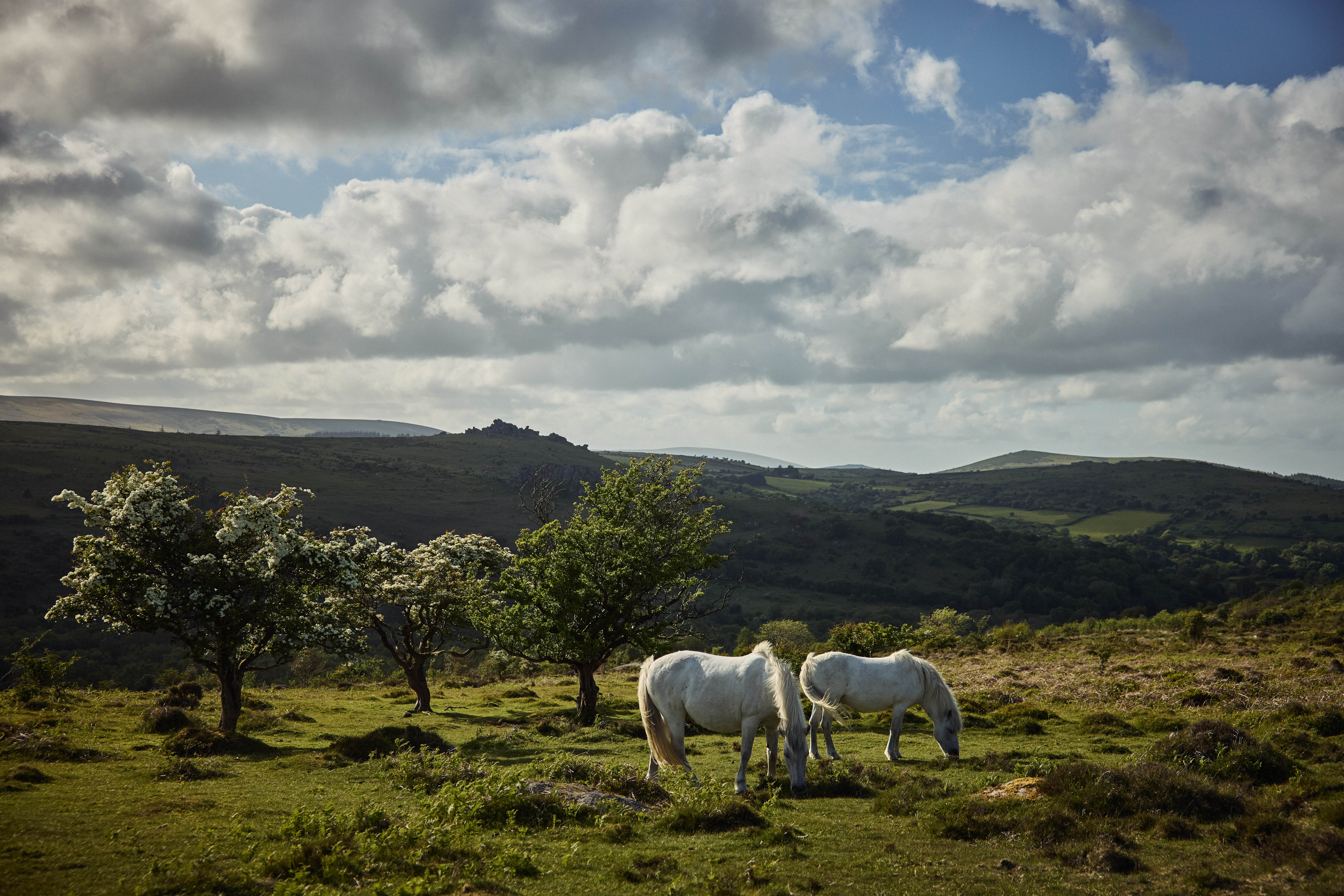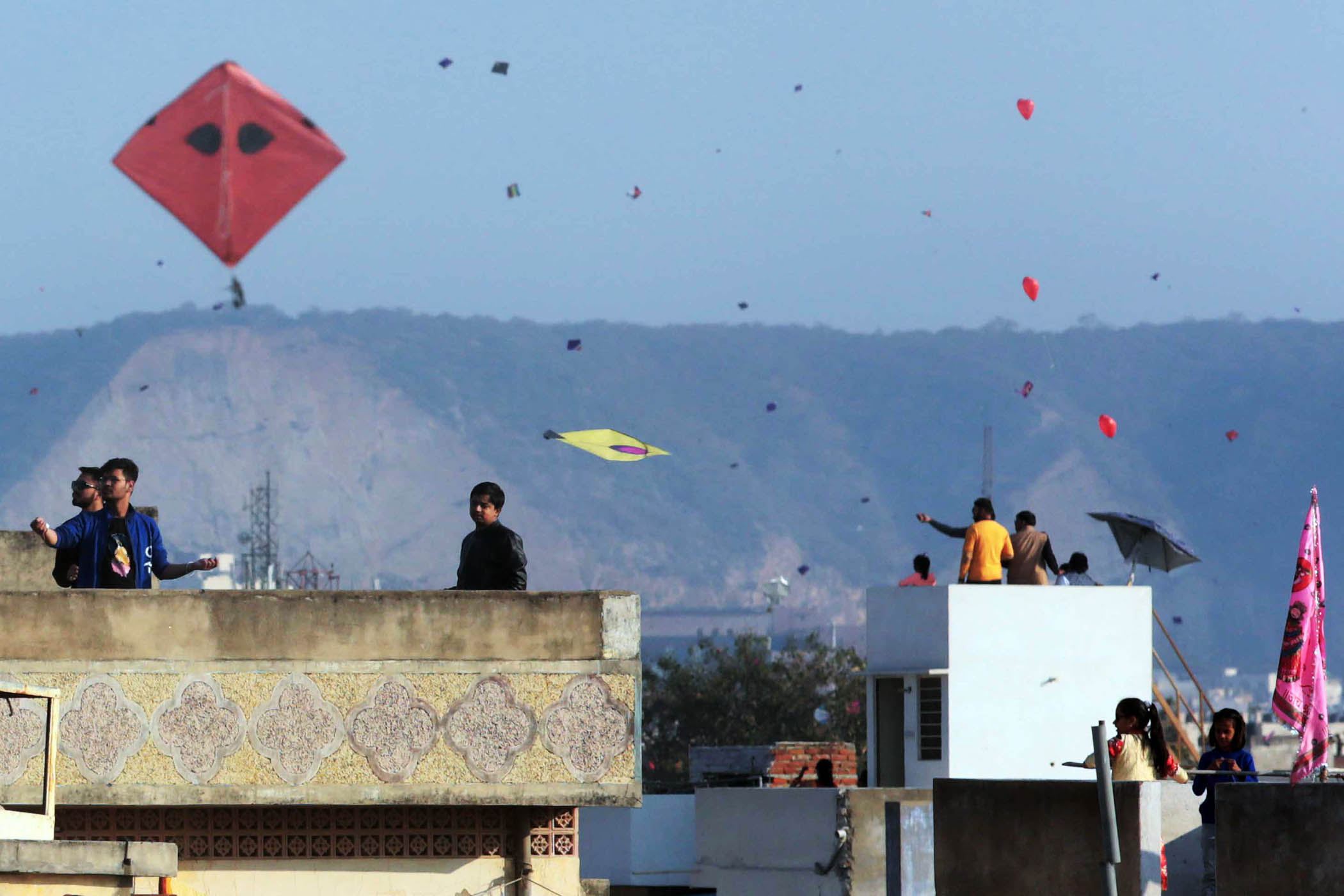We’d only decided on the trip the day before. We had no firm plans other than to drive into the middle of Dartmoor with camping supplies, explore, chat with people, and spend a couple of nights pitching our tent in what I imagined to be mist-wreathed moorlands full of wild horses, the long forgotten dwellings of prehistoric man and mysterious megaliths.
This kind of loosey-goosey, booking-free trip was only made possible by Dartmoor National Park Authority’s recent UK Supreme Court victory over multimillionaire landowner Alexander Darwall. The hedge fund manager and owner of the 4,000-acre Blackford estate apparently deems wild campers a pest to his pheasants, livestock and holiday lets and, in 2022, challenged the right to wild camp on his land. Now, humbled by the hippies, Darwall is to cough up millions in court fees, it’s been reported, and we can wild camp – in designated areas, no trace of our visit left behind.
We exited the M5 and its whirling mass of bank holiday drivers and pulled on to Devon’s smaller, more peaceful roads. By the time we entered Dartmoor National Park they had become so narrow, the hedgerows clipped both wing mirrors. My snoozing girlfriend, Lola, awoke to the noise of ruffled leaves in stereo. Windy single-track roads crossed old stone bridges, steeply rose and fell, leading us closer to the shire-like village of Chagford.

Looking for somewhere ‘incredibly beautiful, not too far from a parking spot and sheltered from the wind…’
We spent a full two hours in Bowden’s, the local camping shop, browsing everything from model planes to binoculars and orienteering compasses. I bought some more camping supplies, including emergency can-openers, a waterproof OS map of Dartmoor and an expensive Finnish compass. I’ve done quite a lot of wild camping, but Lola’s experience was limited to festivals. So this landmark trip was a big deal, and I was keen to make sure that we had everything we needed.
When we left the shop, it was getting dark. We realised we had no idea where to camp, and were both tired, hungry and a little fearful. Our rescue came in the form of India from the Beachwood Bakery two doors away. She brought over coffee and ginger cake and I unfurled my large map and shared our predicament. “What are you looking for in your camping spot?” she asked. I said, “Something incredibly beautiful, not too far from a parking spot and sheltered from the wind.” “This is a stunning spot by the River Dart in a temperate rainforest,” she said, her finger on the map. Go there.”
Minutes later, we were negotiating a steep track down to the river, marked out by the winding line of lush trees at the bottom of the valley. On the horizon was an enormous, dark swirling mass of cloud. The wind seemed to be blowing it our way. Given the strong wind, and oncoming storm we opted, in ignorance and fear, to camp closer to the water, just south of the recommended camping zone.
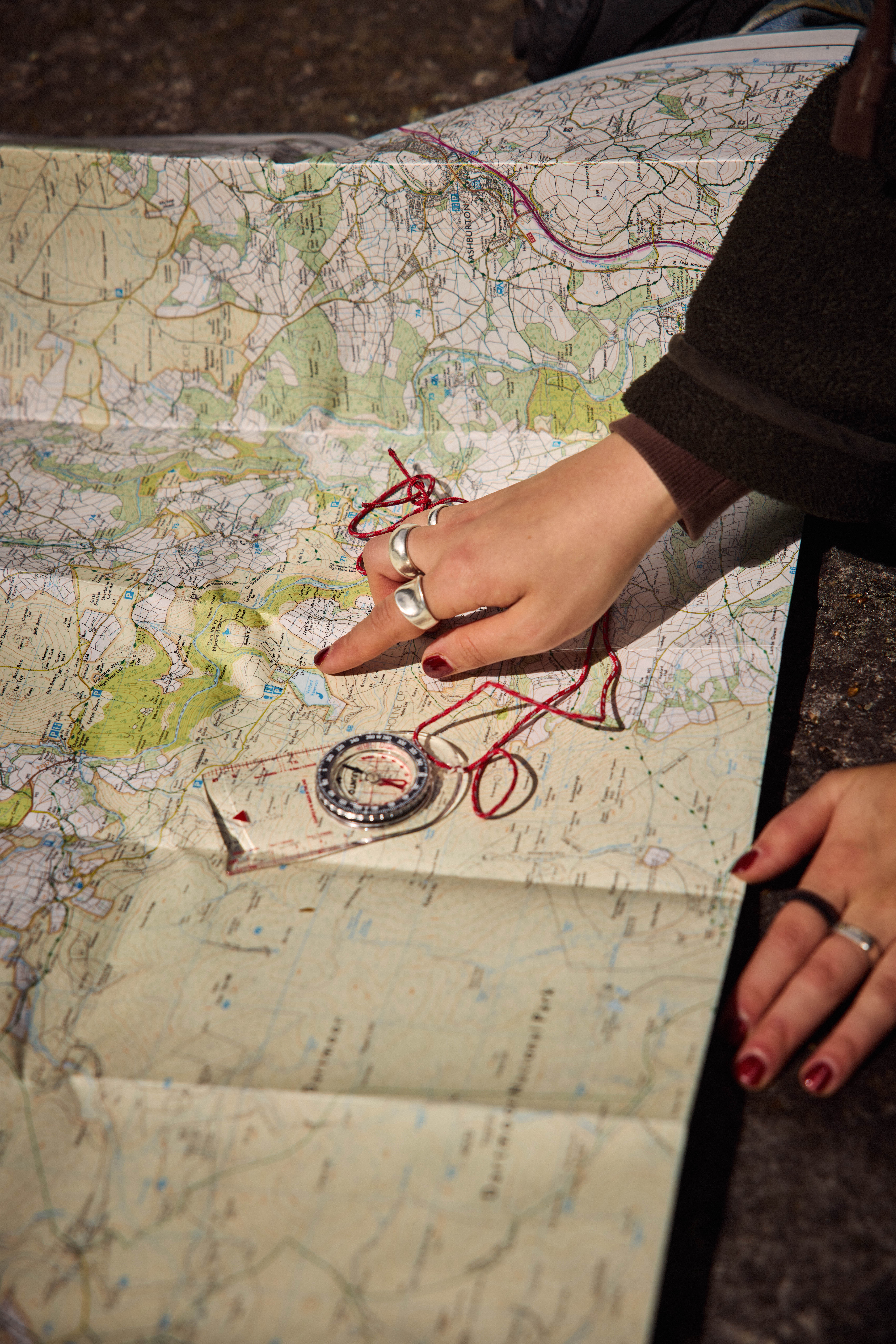
Finding the perfect spot for the night
Our manic race to set up camp before the dark and the rain was interrupted by a friendly camper called Julian, hiking in the other direction. We told him about coming on a whim to celebrate the UK Supreme Court ruling and to experience the glorious freedom of wild camping and a right to roam on Dartmoor. He told us he’d come for similar reasons and how, the night before, he’d been awoken in the night by wild horses scratching against his camper van.
We continued the scramble down to the river, set up our tent by the water’s edge, stripped down and swam in the cool water in the soft dusk light. Afterwards we dried off on the rocks. Now firmly present in the moment, I looked all around me at the crystal-clear river and the moss and lichen-covered trees, their twisted limbs reaching out over the water, the rock formations and waterfalls flowing into the river, and above us the barren hilly moorland.
Related articles:
I got my kettle out to make some tea and, as we sipped, the first few raindrops fell. Less than 10 minutes later, the darkness enveloped us.
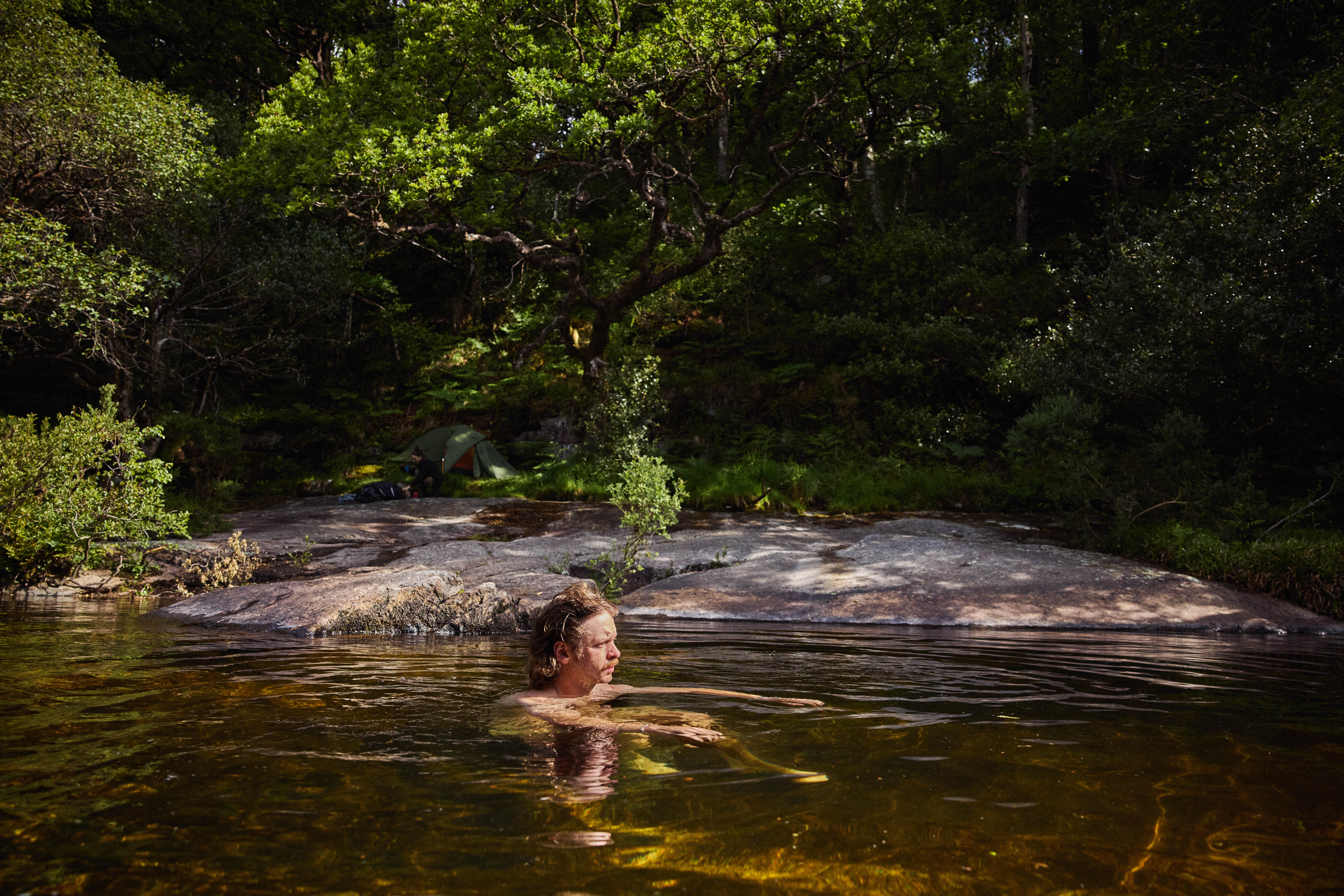
‘The stress of the previous evening washed away’: taking a dip
We entered our green polyester home just as the rain started. I put my head torch on. A large spider was dangling from its silken strand.
Newsletters
Choose the newsletters you want to receive
View more
For information about how The Observer protects your data, read our Privacy Policy
I turned the brightness up on my head torch and looked at the grass outside the tent. With quiet horror I watched as all the creepy-crawlies of the forest sauntered towards our canvas home, seeking the shelter of our warm, dry space. I zipped up the tent, we inflated our roll mats and unrolled our sleeping bags. Lola had a small tick crawling on her face. I removed it, and in doing so noticed that I had a tick on my hand. This was nature uncut. I told myself to hold steady, and wished it was wild horses outside instead of all this lot.
The rain came down harder and the sounds of the river grew louder. Our minds overburdened by worries, we lay down on the uneven, thorny ground and took a break from tick removal to listen to the rain. In time, its rhythmic falling lulled us away to sleep – but not before I remembered what my Devon-based friend had texted me ahead of the trip. “They say Dartmoor either makes or breaks you.”
I felt something I hadn’t felt in a really long time: I felt joy – pure, ecstatic, overwhelming joy
I felt something I hadn’t felt in a really long time: I felt joy – pure, ecstatic, overwhelming joy
I woke up to birdsong and a gentle sunlight shining on the roof of the tent. Lola was half-awake, too. As the sun rose higher and the tent warmed up, I began the romantic ritual of removing the ticks and then went for another swim. I lay back in the water with sleep in my eyes. The stress of the previous evening washed away.
We packed up the tent, climbed out of the lush valley and up on to the barren Buckland Beacon overlooking the rolling hills of Dartmoor. The wind blew so strong we could hardly stand. We climbed on to the highest rock we could find and screamed, shouted and laughed into the wind. Lola remained steadfast in the desperate wind, unblemished by a night of misery. And, perhaps teetering on the edge of madness, I felt something I hadn’t felt in a really long time: I felt joy – pure, ecstatic, overwhelming joy.
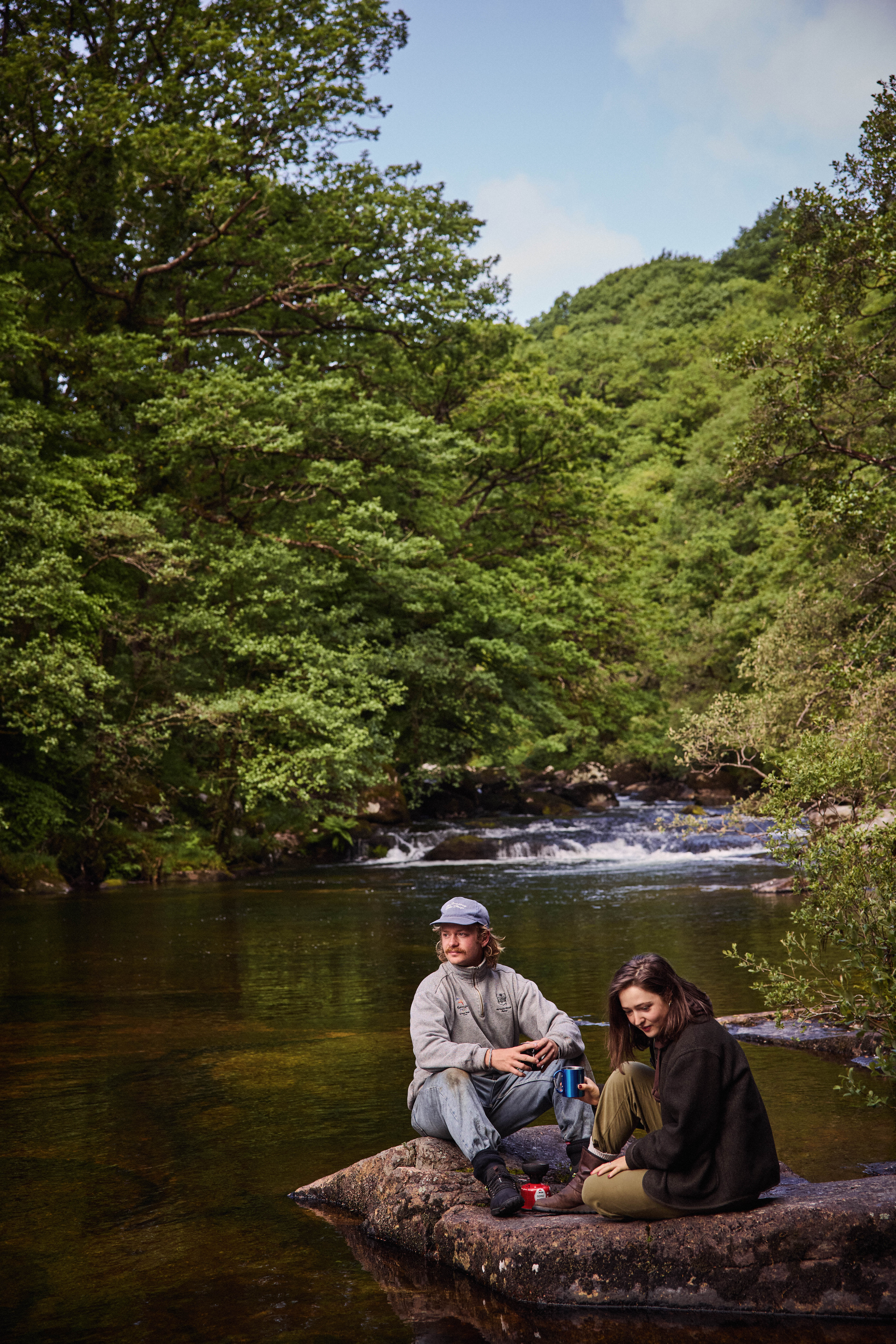
‘Firmly present in the moment’: Sebastian and Lola
We spent the day hiking to cool-looking spots on my OS map – around reservoirs, through endless woodlands and over expansive moorlands. In the afternoon we hiked to Haytor, perhaps Dartmoor’s most iconic tor. It stands over a boundless landscape of rolling moorland, hills capped by granite tors and outlined by forests soaking up the sweet water of river valleys. As far as the eye can see, everything is wild. It’s almost otherworldly. It felt even more so when we passed graceful white horses munching on grass. They seemed to guide us to a rocky outcrop with incredible views in every direction… and nice soft, short, tick-free grass. We set up our home once again. That night was camping bliss, and we felt like hardened outdoor veterans. Music played from our portable speaker, we sipped beers and gazed out over the noble, shared national park. I wrote in my notebook, Lola read her book, we slept for 12 hours.
The next morning, hiking back to Haytor, we happened upon a big celebration with hundreds of people standing atop the hill singing, dancing and celebrating the land. The May Day Morris dancers performed to the sounds of violins, mandolins, guitars and drums. People stood with posters and banners proclaiming “the stars are for everyone” and “the people’s right to roam beats millionaires’ right to moan.” Moments later, a giant costumed forest creature rose up and with it, a few hundred people danced around the tor. Lola and I looked at each other and smiled. I knew then we would be back.
